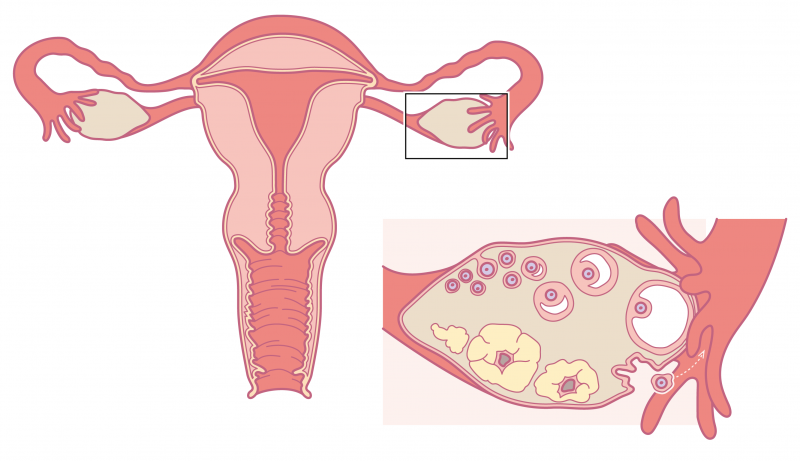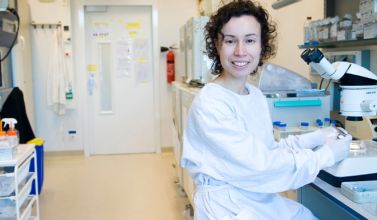Scale of riping egg cells
We study the different stages that human egg cells and the cells around them go through in the ripening process in the ovary. With that information in hand we create a sort of scale, with which you can compare a developing egg from the artificial mini-ovary and know where it is in its development. By studying and understanding gametogenesis (development of female and male reproductive cells) and embryology we can recognize the maturation and fertilization stages.
Future solutions: artificial mini-ovary and ovary-on-a-chip
Through these results, we will know which cells and chemical signals are exactly needed to allow egg cells from the artificial mini-ovary to mimic the ripening process accurately. Mature eggs could then be used for in vitro fertilisation (IVF) and after a successful fertilization an embryo can be placed in the womb. If this method is successful, women who have tissue of ovaries in frozen storage can benefit from this procedure. We hope that in the future other infertile women can be helped by using so-called induced pluripotent stem cells (iPSC). These are normal skin cells, for example, that are reprogrammed to form any tissue in the human body, like an ovary.
This same iPSC method will also be used to make an ovary-on-a-chip. This will serve to test the effects of therapy on the egg and fertility. The toxicity of substances can also be tested for reproduction and the chip model can mimic diseases that we want to study.

Ovary function and dysfunction
Each woman has two ovaries lying in the abdominal cavity left and right next to the uterus. The ovaries produce different hormones, such as estrogen, progesterone and androgens, which play a role in the menstrual cycle, secondary sex characteristics and sexuality. In reproduction, the ovary is responsible for ripening egg vesicles (follicles) to egg cells and ovulation under the influence of different hormones. Women who have survived cancer as a child are often infertile because the chemotherapy has damaged their oocytes. That is why ovary tissue is frozen before the chemotherapy is started.



